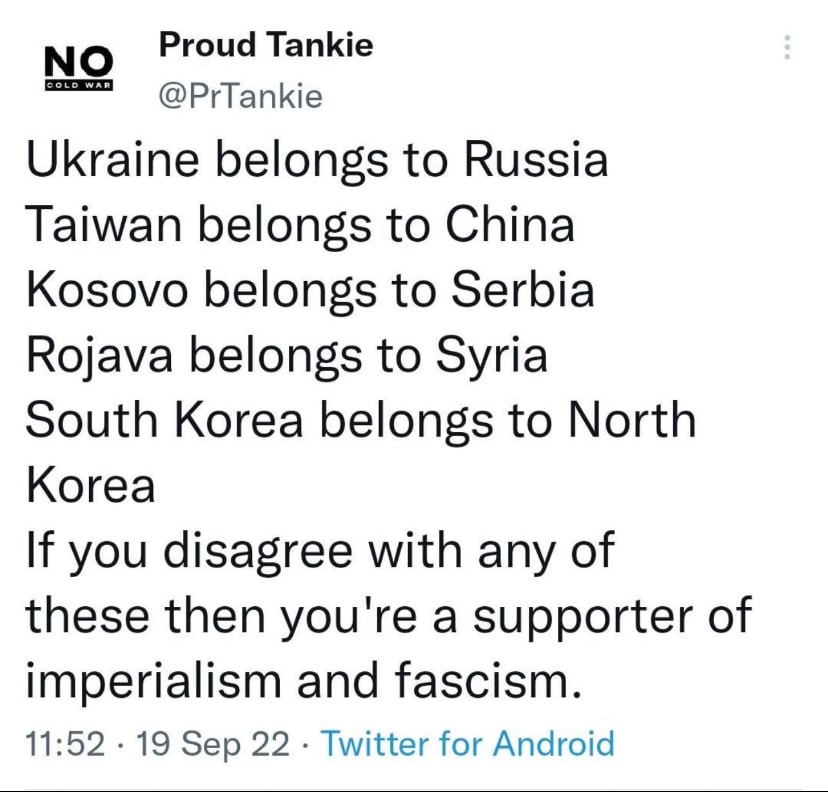738
you are viewing a single comment's thread
view the rest of the comments
view the rest of the comments
this post was submitted on 04 Aug 2024
738 points (91.1% liked)
Facepalm
3346 readers
13 users here now
founded 2 years ago
MODERATORS

Russia - Check, China - Check, North Korea - Check
Russia - Check, China - Check, North Korea - Check
Russia - Check, China - Check, North Korea - Check
Russia - Check, China - Check, North Korea - Check
Russia - Check, China - Check, North Korea - Check
Russia - Check, China - Check, North Korea - Check
Russia - Check, China - Check, North Korea - Check
Russia - Check, China - Check, North Korea - Check
Russia - Check, China - Check, North Korea - Check
Russia - Check, China - Check, North Korea - Check
Sorry...what is it about these fascist dictatorships that you think isn't fascist dictatorship?
1) Ideologies are frameworks which guide actions, not a list of symptoms.
Ideologies are formed by material conditions in history, not just a group of ideas put together. That's why neoliberalism and fascism are also distinct, despite all the surface-level similarities we can see around the world.
Fascism wasn't just invented by someone saying 'why doesn't one person have all the power and get rid of minorities'. Fascism grew out of the conditions of the 1910s in Europe during a wave of socialist and communist uprisings which threatened the bourgeois, quelled by returning soldiers from WWI. That's why it's militaristic and ultranationalist, that's why it's anti-communist and anti-liberal.
Fascism is born out of anti-communist sentiment in the petit-bourgeoisie (lower owning class), while two of those countries are ruled by communist parties. Russia is a haute-bourgeoisie capitalist state, not class collaborationist or petit-bourgious. China and North Korea openly dominate the haute booj rather than vice versa. Contrast these all against fascist states.
The CPC ('socialism with Chinese characteristics') and WPK (Juche) are not far-right. They're both generally considered far-left, and certainly not far-right (FWIW, 'left' and 'right' are a poor model for understanding politics).
Ultranationalism is not 'lots of nationalism', it's when a country "asserts or maintains detrimental hegemony, supremacy, or other forms of control over other nations (usually through violent coercion) to pursue its specific interests." North Korea clearly doesn't have control over other nations.
China does not believe in militaristism.
What natural social hierarchy do these states believe in?
Russia is individualist, not collectivist.
What regimentation is there?
Some of those other points are debatable (such as congress party structures with a president being dictatorships, where fascists explicitly denounce that as liberalism), but these are some which are just blatant.